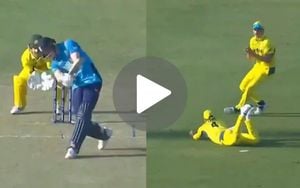The Supreme Court on Friday dealt President Donald Trump a temporary setback by preventing him from firing Hampton Dellinger, the head of the Office of Special Counsel (OSC), a federal agency responsible for protecting whistleblowers. This ruling is significant as it marks the first legal showdown over executive power since Trump resumed office.
Trump’s effort to dismiss Dellinger, who was appointed by President Joe Biden and began his term in March 2024, encountered swift pushback from the courts. The agency Dellinger oversees plays a pivotal role, enforcing whistleblower protections and ensuring compliance with laws restricting political activities by federal workers. Dellinger’s firing was executed via email on February 7, 2025, without any stated cause, prompting immediate legal action from Dellinger.
On February 12, Dellinger secured a temporary restraining order from U.S. District Judge Amy Berman Jackson, allowing him to remain in his position for 14 days as the case proceeded through the courts. Trump’s administration sought to block the court order, arguing it infringed on his powers as president to manage the executive branch.
The Supreme Court’s decision not to immediately act on the appeal reflects its cautious approach to interventions at this stage. By holding Trump’s request “in abeyance,” the court has deferred any ruling until February 26, when the temporary order is set to expire. This postponement suggests the court is interested in allowing the immediate legal processes to run their course before stepping back in.
Notably, the high court’s decision was split along ideological lines. Justices Sonia Sotomayor and Ketanji Brown Jackson indicated they would have outright denied the administration’s application to intervene, sounding alarm over Trump’s broad approach to executive power. Conversely, conservative Justices Neil Gorsuch and Samuel Alito expressed dissent, criticizing the lower courts for what they perceive as overreach. Gorsuch criticized the district court for not adequately addressing historical precedents, stating, “The district court effectively commanded the president and other executive branch officials to recognize and work with someone whom the president sought to remove from office.”
The OSC operates under legal restrictions established by Congress, which dictate it can only be led by someone appointed for specific reasons, like inefficiency or malfeasance. Dellinger’s case poses fundamental questions about the limits of presidential authority and could set significant precedent for how executive power is exercised, particularly when it regards independent federal agencies.
This ruling arrives amid increasing scrutiny over Trump’s broader management of federal agencies, where complaints have risen about attempted overreach. Legal experts suggest the case may quickly return to the court if lower courts issue longer-term decisions affecting Dellinger's status. Steve Vladeck, CNN Supreme Court analyst, remarked, “The best explanation for why the justices opted to put off a ruling is to avoid opening the floodgates to numerous emergency requests. This way, the court preserves the ability to resolve whether Dellinger should remain employed as soon as the middle of next week.”
Legal challenges around executive branch management under Trump have already begun to proliferate, as he seeks to reshape the federal government. Since returning to the White House, Trump has aggressively fired federal employees across various departments, aligning with his goal of significantly altering federal oversight bodies.
One of the central debates surrounding Dellinger’s case is whether Trump’s potential replacements seek to install officials who would align with the administration’s objectives rather than remain independent overseers. Dellinger himself expressed relief following the Supreme Court’s order, stating, “I am glad to continue my work as an independent government watchdog and whistleblower advocate.”
The Office of Special Counsel, established to safeguard whistleblowers, is sometimes mistakenly identified with the more publicized special counsel investigations within the Justice Department. Despite its obscurity compared to other government bodies, its functions are pivotal, particularly as the Trump administration aims to make sweeping changes to its structure.
The next hearing set for February 26 is not only consequential for Dellinger but could also have far-reaching impacts on Trump’s management of independent agencies. Law professors have already cautioned about potential repercussions concerning Trump’s executive authority, urging the Supreme Court to carefully evaluate any decisions made.
With lower courts participating vigorously, the urgency surrounding the matter will likely keep it under the judicial spotlight. The stakes couldn’t be higher as Trump navigates this legal maze, with independence of oversight agencies possibly hanging in the balance.
If the lower court rules favorably for Dellinger, it may inhibit Trump’s ability to place allies within key oversight roles. Conversely, if the Supreme Court were to side with Trump’s administration, it could signal extensive leeway for future removals of agency heads and reshape how presidents interact with independent regulatory bodies.
On the larger stage, this case raises pertinent questions about how the balance of power functions among the branches of government. The discussion surrounding Dellinger's position reflects deep-seated tensions about who truly has the power to govern independently and whether legislative safeguards will suffice against executive encroachments. The upcoming weeks will be pivotal as both Congress and the courts challenge the direction of executive authority through this widely watched case.



